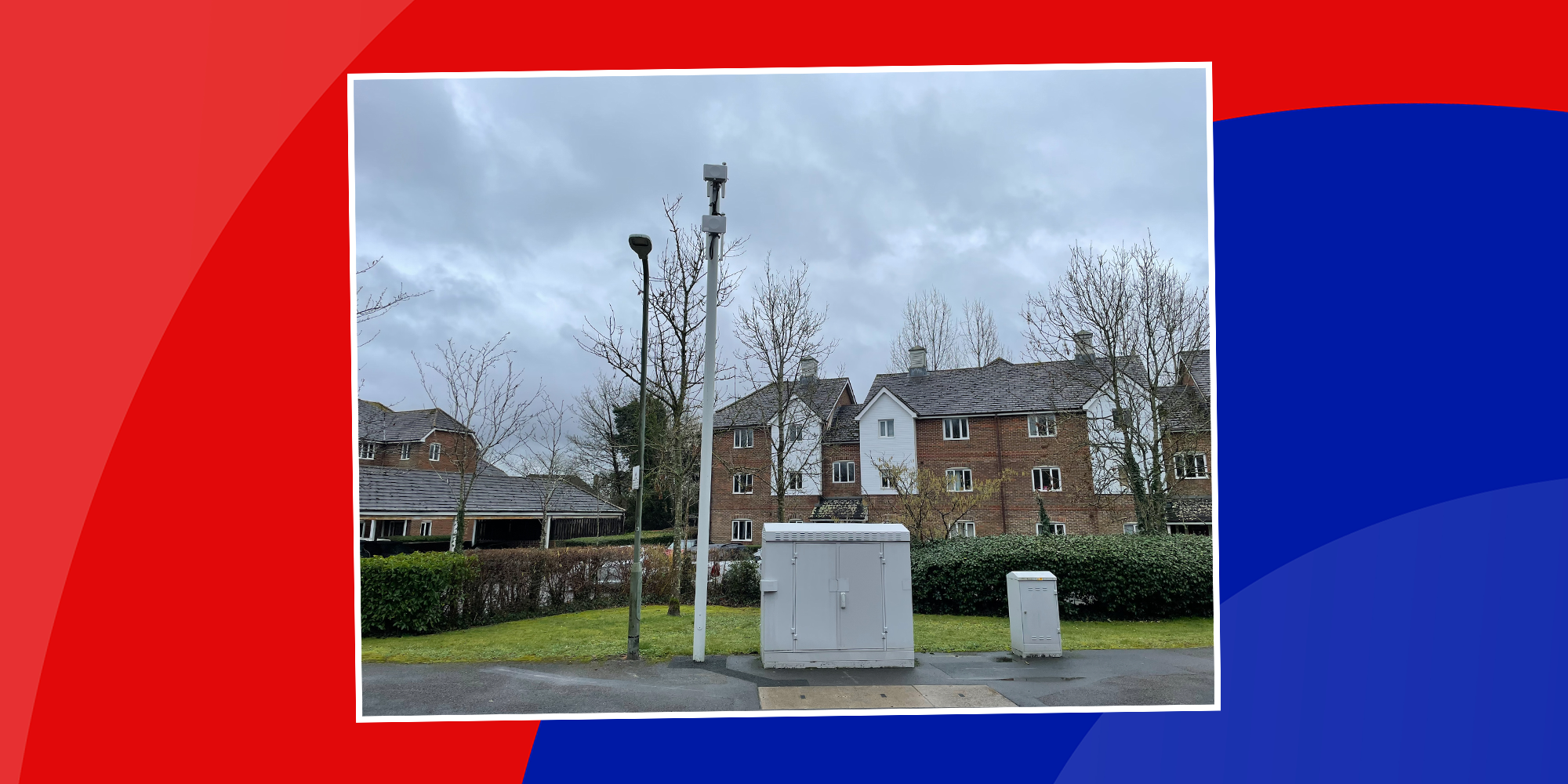- Virgin Media O2 has successfully deployed 4G and 5G smart poles on top of its existing fibre network in a UK first
- Smart poles with 4G and 5G mobile cells don’t require planning permission, can be installed in a matter of hours and are powered by Virgin Media O2’s fibre network using innovative ‘digital electricity’ technology
- With around 25,000 cabinets already in place on streets up and down the UK, the trial could pave the way for a wide scale rollout that could significantly speed up network build, reduce costs and de-risk upgrade programmes
- In the future, these smart poles could also power smart city solutions and EV chargers using Virgin Media O2’s existing duct networks
Virgin Media O2 has successfully trialled an innovative new way of improving and expanding mobile services by bringing together its fixed network infrastructure with new smart poles, which could help to boost mobile coverage in local areas across the UK.
The innovation trial, delivered in collaboration with shareholder Liberty Global, has seen innovative new smart poles installed beside the operator’s existing national fibre network cabinets. The poles, which are much smaller than traditional mobile phone masts and do not require planning permission, can be safely installed in less than a day and house small cell technology which can boost mobile coverage in busy areas.
In a UK first, the electricity is supplied by Virgin Media’s fibre network rather than a traditional power supply through innovative ‘digital electricity’ technology, which transmits power from on-street cabinets in the local area along fibre optic cables. The same fixed fibre network is also used to carry data to and from the mobile cells and the internet.
Small cells housed at the top of the pole add capacity to the local mobile network, reducing congestion and improving services for users. Virgin Media O2 is already leading the way on small cells rollout and the technology is enabling the company to accelerate its customer-centric network rollout in a more environmentally friendly way while boosting mobile capacity in dense urban areas where it’s needed most.
The current process of deploying mobile infrastructure can be time consuming as it typically involves obtaining planning permission for new or upgraded infrastructure, installing radio equipment, connecting sites to the power network, before establishing fibre connections to carry mobile traffic to the internet – a process known as backhaul. For many non-converged mobile operators, this involves paying for a fixed backhaul connection which is often provided by a competitor.
With this trial, Virgin Media O2 has demonstrated how it can leverage its converged network by installing new small cells to boost mobile capacity and connecting them to Virgin Media’s traditional fixed fibre network. This reduces cost and complexity by negating the need for a separate backhaul connection or dedicated electricity supply and can help avoid a potentially time-consuming planning process.
Virgin Media O2 currently operates around 25,000 street cabinets across the UK, all of which are connected to the National Grid and which could power these new smart poles, helping meet demand for mobile sites in urban areas for years to come.
Smart city infrastructure, including electric vehicle (EV) chargers, can also be built into the poles providing new opportunities for Virgin Media O2 to further monetise its network in future.
Jeanie York, Chief Technology Officer at Virgin Media O2, said: “As we continue investing to upgrade and expand our network, we’re always looking for new ways to work smarter and deliver more for our customers. Groundbreaking trials like this can help boost mobile coverage and bring next generation services to even more customers.
“The ability to use our existing national fixed network to backhaul and power small cells could be transformational – helping us save time and money, open up new revenue streams, support smart city technology and fully leverage the benefits of our scaled converged network.”

